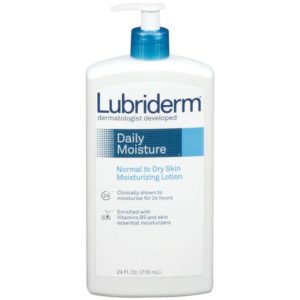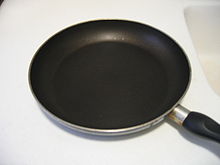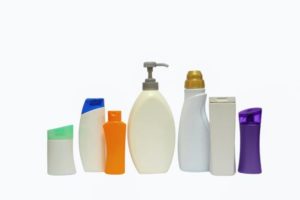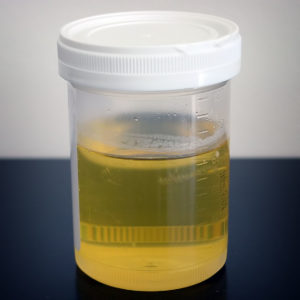 Do you know what chemicals you're exposed to on a daily basis? A recent study found that women with cancers of the breast, uterus, skin (melanoma), or ovaries had significantly higher levels of certain endocrine disrupting chemicals in their bodies than women without any of those cancers.
Do you know what chemicals you're exposed to on a daily basis? A recent study found that women with cancers of the breast, uterus, skin (melanoma), or ovaries had significantly higher levels of certain endocrine disrupting chemicals in their bodies than women without any of those cancers.
The researchers looked at levels of some hormone disrupting chemicals: PFAS (per- and polyfluoroalkyl substances), phenols (e.g. BPA), and parabens in both men and women. They found that women had higher levels of endocrine disruptors for 4 types of cancers (breast, uterine, ovarian, and melanoma). However, there was no relationship between the endocrine disruptors and thyroid cancer in men or women, and no relationship in men with prostate cancer.
The reason the researchers looked at breast, prostate, thyroid, ovarian, endometrial, and testicular cancers, and melanoma is because they are "hormone-mediated" cancers. That is, hormones play a role in growth and progression of these cancers.
Bottom line: You cannot totally avoid these chemicals because they are used in so many products, but you can really lower your exposure to them. Read Avoiding Harmful Chemicals for easy tips on reducing your exposure to these harmful chemicals. For example, don't use non-stick pots and pans, don't use plug-in air fresheners, and try to use fragrance-free or unscented products as much as possible. Use paraben and phthalate-free personal care products.
From Medical Xpress: Study finds significant chemical exposures in women with cancer
In a sign that exposure to certain endocrine-disrupting chemicals may be playing a role in cancers of the breast, ovary, skin and uterus, researchers have found that people who developed those cancers have significantly higher levels of these chemicals in their bodies. ...continue reading "Some Cancers In Women Linked to Chemical Exposures"

 This is rarely mentioned, but there is research showing that commonly used chemicals that we are exposed to, such as bisphenols (BPA, BPS), phthalates, persistent organic pollutants (e.g.flame retardants, nonstick cookware), heavy metals (e.g. lead), and some pesticides (e.g.chlorpyrifos, glyphosate), all have an impact on the gut microbiome in animals and humans.
This is rarely mentioned, but there is research showing that commonly used chemicals that we are exposed to, such as bisphenols (BPA, BPS), phthalates, persistent organic pollutants (e.g.flame retardants, nonstick cookware), heavy metals (e.g. lead), and some pesticides (e.g.chlorpyrifos, glyphosate), all have an impact on the gut microbiome in animals and humans. The following is a really nice article about endocrine disruptors (chemicals that can interfere with the body's hormonal system). Journalist Hillary Brueck writes about where they are found (all around us!), some of the many negative health effects, and about NYU physician and researcher
The following is a really nice article about endocrine disruptors (chemicals that can interfere with the body's hormonal system). Journalist Hillary Brueck writes about where they are found (all around us!), some of the many negative health effects, and about NYU physician and researcher  The American Academy of Pediatrics (representing 67,000 pediatricians) has come out with a statement expressing
The American Academy of Pediatrics (representing 67,000 pediatricians) has come out with a statement expressing  Today I am posting the story of one person writing about how hard it is to reduce contaminants, that is, unwanted chemicals, in our bodies. The story is by Nicholas Kristof, who has been eating organic foods and trying his best to avoid endocrine (hormone) disrupting chemicals (such as BPA) for a number of years. But the analysis of his urine showed that he wasn't able to totally avoid them.
Today I am posting the story of one person writing about how hard it is to reduce contaminants, that is, unwanted chemicals, in our bodies. The story is by Nicholas Kristof, who has been eating organic foods and trying his best to avoid endocrine (hormone) disrupting chemicals (such as BPA) for a number of years. But the analysis of his urine showed that he wasn't able to totally avoid them. Uh oh....A recent study found that every baby teether tested (and they tested 59 teethers), including all those labeled "BPA free", leached various parabens, bisphenols (including BPA or bisphenol A), and other endocrine disrupting chemicals. Infants chew and suck teethers to soothe the pain from their teeth emerging in the first year of life.
Uh oh....A recent study found that every baby teether tested (and they tested 59 teethers), including all those labeled "BPA free", leached various parabens, bisphenols (including BPA or bisphenol A), and other endocrine disrupting chemicals. Infants chew and suck teethers to soothe the pain from their teeth emerging in the first year of life.